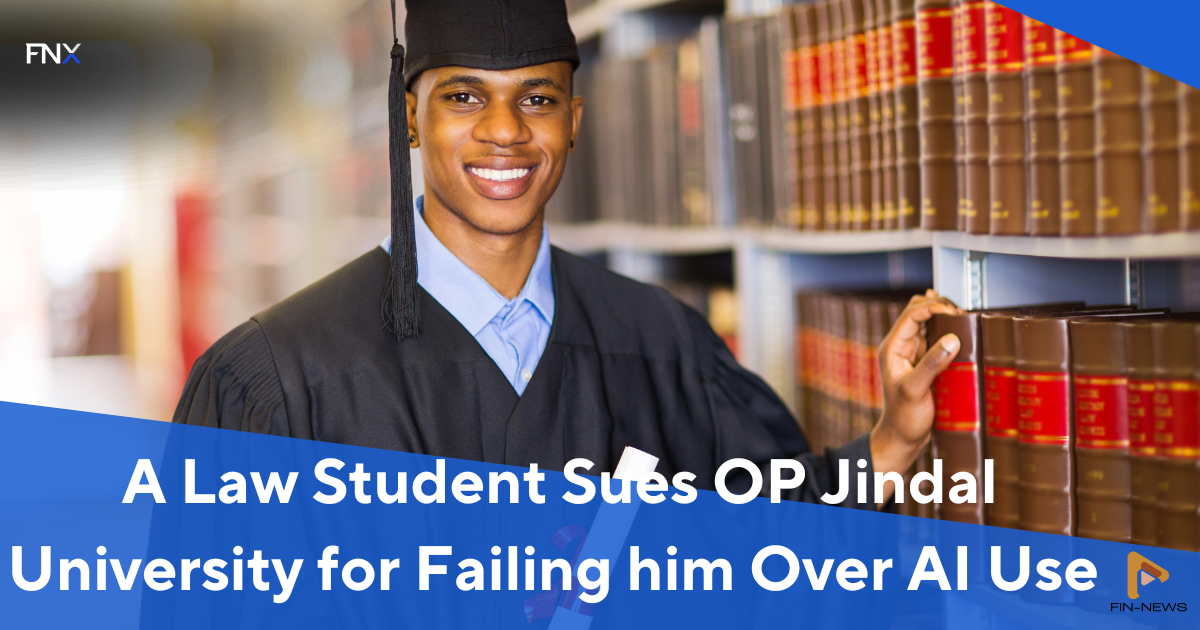
A unique legal battle has unfolded between a law student and OP Jindal Global University, highlighting the evolving relationship between education and artificial intelligence. Kaustubh Shakkarwar, an LLM student specializing in Intellectual Property and Technology Laws, has filed a lawsuit against the university after being accused of using AI to generate answers for his end-term exam.
The Accusation and the Fallout
On June 25, 2024, Shakkarwar received a notification from the university's Unfair Means Committee. The committee alleged that 88% of his answers for the "Law and Justice in the Globalizing World" exam were AI-generated. This accusation led to his failure in the course.
Shakkarwar vehemently denies these allegations. He argues that he answered the questions independently and that the university's decision was based on a flawed assessment. He claims that the university lacks a clear policy regarding the use of AI in academic work and that the accusation was made without proper evidence or due process.
The Legal Battle Begins
In response to the university's decision, Shakkarwar filed a petition in the Punjab and Haryana High Court on November 4, 2024. The petition challenges the university's authority to determine whether an answer is AI-generated and the lack of transparency in the assessment process.
The student's legal team argues that there is no specific prohibition on using AI-generated content in academic work. They contend that AI can be a valuable tool for research and learning, and that universities should encourage its responsible use.
University's Stance
OP Jindal Global University has not publicly commented on the lawsuit, citing the ongoing legal proceedings. However, the university's decision to accuse a student of AI misuse raises questions about its approach to academic integrity in the age of AI.
The Broader Implications
The case of Kaustubh Shakkarwar has broader implications for higher education institutions. As AI technology continues to advance, universities are grappling with the challenge of balancing academic integrity with the potential benefits of AI.
Some key questions arise:
- How can universities detect AI-generated content accurately and fairly?
- What are the ethical implications of using AI in academic work?
- How can universities encourage the responsible use of AI while maintaining academic standards?
This case could set a precedent for how universities handle AI-related academic misconduct and shape the future of education in the AI era.
A Glimpse into the Future of Education
The increasing sophistication of AI tools has led to concerns about academic integrity. While AI can be a powerful tool for learning and research, it also raises ethical questions about plagiarism and cheating.
Universities must develop clear guidelines and policies regarding the use of AI in academic work. These guidelines should balance the need to maintain academic standards with the potential benefits of AI.
Furthermore, universities should invest in AI detection tools and educate students about the ethical use of AI. By fostering a culture of academic integrity and responsible AI use, universities can ensure that technology enhances, rather than undermines, the learning experience.
As the boundaries between human intelligence and artificial intelligence continue to blur, it is imperative for educational institutions to adapt to the changing landscape and embrace the opportunities and challenges that AI presents.

Leave a comment
Your email address will not be published. Required fields are marked *